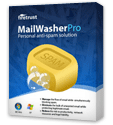November 27, 2018
Have you received the following message on your Facebook Messenger?
"Hi....I actually got another friend request from you yesterday...which I ignored so you may want to check your account. Hold your finger on the message until the forward button appears...then hit forward and all the people you want to forward too....I had to do the people individually. Good Luck!"
If you did and felt panicked, worried, or otherwise compelled to forward the message to some or all of your friends, you were pranked. This is a known Internet hoax. It first made the rounds on Facebook in October, 2018, one month before the latest circulation.
Hoaxes like this make the rounds on social networks every month or so. They are created by teenagers, or other silly people who never grew up, who turn their hoaxes loose on their friends to see how fast and far they can spread. I call this shits and giggles hoaxes. These Facebook chain letter hoaxes are like kids playing Tag, You're It.
What gives this away as a hoax?
The person sending it to you didn't compose the message. They forwarded it after receiving it from one of their Facebook friends. The same exact message is being sent by thousands of members right now as I type this. If you see other people talking about receiving the same message, it is likely a chain letter hoax.
The message claims that you sent another friend request to the person contacting you on Messenger, "yesterday." They claim they ignored it. But now they are telling you about it, but haven't mentioned your name; they just said "Hi." In effect, they are claiming that your account has been hacked.
They ask you to hold your finger down until the forward button appears. But, most computer users don't have a touch screen. The person who created this message was using a smartphone or tablet that used touch rather than mouse actions. The entire hoax is basically targeting handheld device users.
Last, they suggest that you forward the very same message they sent to you, as is, to as many of your friends as you want, which is usually everyone on your friends list. Did you read the first line of the message? It claims that "you" sent another friend request to them. If you forward this hoax you are telling your friends that you received another friend request from each of them! This doesn't make sense unless you actually did receive another friend request from all of these friends. Your friends who actually take a minute to read every word will either think that you are telling them that their account has been cloned/hacked, or you are mistaking them for someone else, or that you have been taken in by a hoax (which is what actually happened).
If this was an actual alert from a friend about your account being cloned, wouldn't you rather tell your friends in a post on your timeline where all your friends can read it? You could then ask your friends to go to that fake profile and report it as a scam page that is claiming to be somebody that they know.
After receiving a few of these messages you and your friends should realize that it is a chain letter hoax. It's time to grow up and stop falling for and participating in chain letter hoaxes.
The bottom line is that if you do actually receive a second friend request from an existing Facebook friend, tell them about it in a private message, or call them on the phone. Some members have the habit of losing access to their accounts (forgot their password, lost the device that had the account, the old account was deactivated for some infraction, or by choice, etc.) and create new accounts. But if you didn't actually receive another friend request from one or more of your friends, please don't forward chain letter messages claiming that they did send the request!
Continue reading "Were you really hacked, or is it just another Facebook hoax?" »
back to top ^





